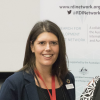In this blog for the Spotlight on the Code series, Dr Philippa Smales, Network Manager for the Research for Development Impact Network, considers why the ACFID Code includes a requirement for members to have ethical guidelines for research. She shares her top 4 tips and resources for organisations wanting to develop their own.
Quality Principle 4 in the ACFID Code of Conduct is the one that the Research for Development Impact Network (RDI Network) is the most excited about. It includes a requirement for members to have ethical guidelines for their research (4.2.3). Even though the Code only requires members who do certain types of research to have ethical guidelines, there are benefits to having ethical guidelines for all types of research and evaluation, no matter the size or scope of your organisation.
Another set of guidelines… are they really necessary?
First, it is about ensuring that we respect the rights of, and give due regard for the culture, values, customs, beliefs and practices - both individual and collective - of those involved. Respect for human rights is of upmost importance, but sometimes in our research or evaluation processes it may not be seen as the overarching consideration. For instance, how do you make sure that you have informed consent from your participants, have you considered what is culturally appropriate? Having a clear guide, or at least even an internal discussion with your colleagues beforehand, ensures that you are not later worried about using the results from fruitful discussions with participants.
Second, it will help your organisation be accountable to your research or evaluation participants, your stakeholders, and to the community, and to ensure that what you are doing is ultimately for their benefit. For instance, have you thought about how questioning women at that well may be seen by their husbands, have you considered possible risks? How do you balance the risk against the benefits that can come from the research?
Third, does your organisation have a way of determining if the research is of merit, or if you are contracting the right consultants - do they have the integrity you would want someone representing your organisation to have? People are more likely to participate in research or an evaluation if they can trust the quality, and the integrity of the research and researcher. Ethical guidelines can promote the values that are essential to collaborative work, such as trust, accountability, and mutual respect.
Fourth, it is important to make sure that the research is carried out in a just or fair way. Has a particular group missed out on being consulted about the project, such as people with disabilities or a minority group? It is also fair to ensure that those people that have been participants in the research, learn about what you determined from that research. For example, if you have shown that literacy levels are lower that what their government believes, communicating that information could allow them to advocate for their right to education.
These reasons echo the principles from the ACFID and RDI Network Principles and Guidelines for Ethical Research and Evaluation in International Development: respect, beneficence, research merit and integrity, and justice.
Your organisation may like to adopt or endorse the Principles and Guidelines, which were developed for the sector specifically. Or you can develop your own more comprehensive research guidelines, like International Women’s Development Agency (IWDA) did with their Feminist Research Framework. What is helpful about their framework is that it incorporates their organisationally supported feminist principles, explains how to conduct ethical research, and also gives a clear outline of internal approval and review processes for different types of research.
Top four tips to developing ethical guidelines or frameworks for your organisation
1. Start with a conversation
Set up a safe space and ask staff to talk about any ethical issues that have arising for them when doing research or evaluation in the past, talk about why the situation arose and how they dealt with it at the time, discuss what kind of policy or guideline might have been useful in that situation. You may also want to discuss this with your partner organisations; has there been times where they would have liked further direction from your organisation, or times when they were unsure how to proceed?
2. Focus on your organisation’s own values
Each organisation has their own set of values and their own focus on what is important to them, think about your vision or mission, why was the organisation set up? Supplement or adapt the ethical Principles to make them your own.
3. Draft the guideline, then consult and communicate
Discuss the draft with those that were part of the original conversations, is it what they were expecting, would it be useful, is it clear – particularly to your partners. This is the time to check that it is on the right track, if it will be useful and used by your staff and partners - or to adjust it so that it will be.
4. Make everyone aware it is not just a tick box/fill in the form exercise
Having an ethical guide or framework for your organisation is not going to solve all problems. It is important to continue the conversation, to use the guidelines to open up those conversations and foster a culture of ethical inquiry within your organisation. A culture of ethical inquiry means that instead of viewing “ethics” as a set of rules or regulations, we are instead encouraged to think both critically and reflectively about possible ethical issues and challenges that may arise, and build competence in ethical decision-making.
Developing your own organisational ethical guidelines or framework will be useful also for any new staff, and any consultants, or research assistants that you may use. Then the values of your organisation will be clear from the start and they will be able to better represent your organisation, and protect its reputation, when out doing research and evaluation.
More assistance in terms of how to operationalise the Principles can also be found on the RDI Network website, including some helpful tools and checklists in the digital version of the Starter Kit.

Dr Philippa Smales
Dr Philippa Smales is the Network Manager for the Research for Development Impact Network (RDI Network). She has previously worked in several regional NGOs based in both Thailand, and in Australia, focusing mainly on Asia and the Pacific. She lectures at the University of Melbourne and is on the executive committee of the Development Studies Association of Australia (DSAA).









